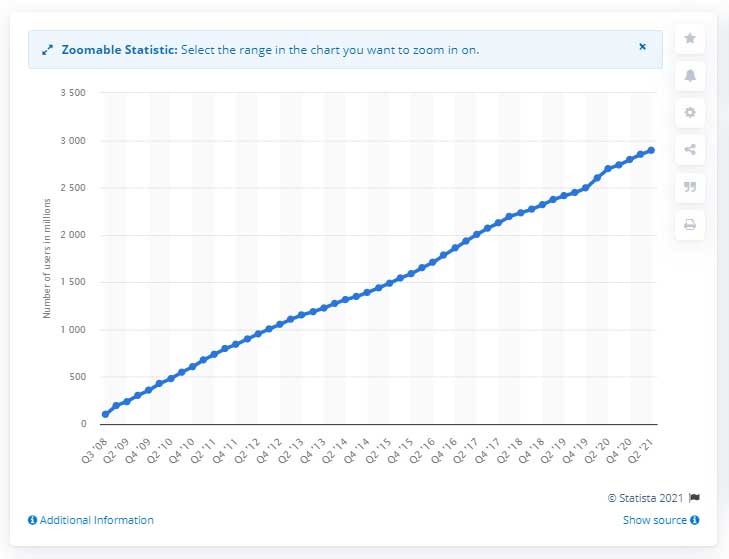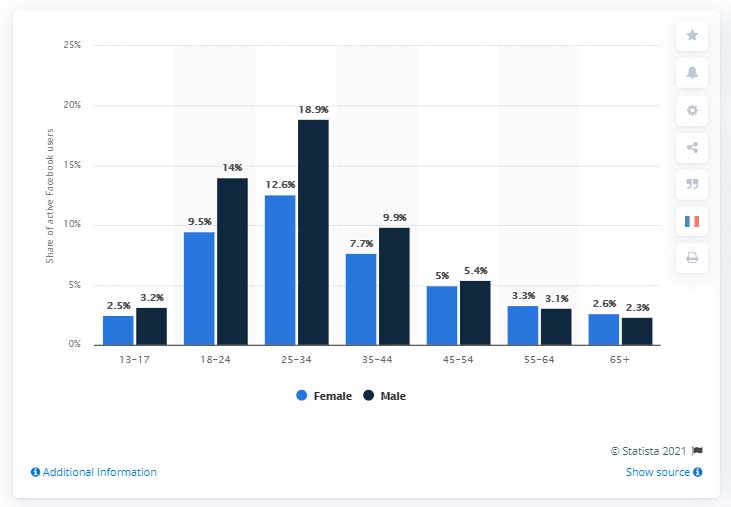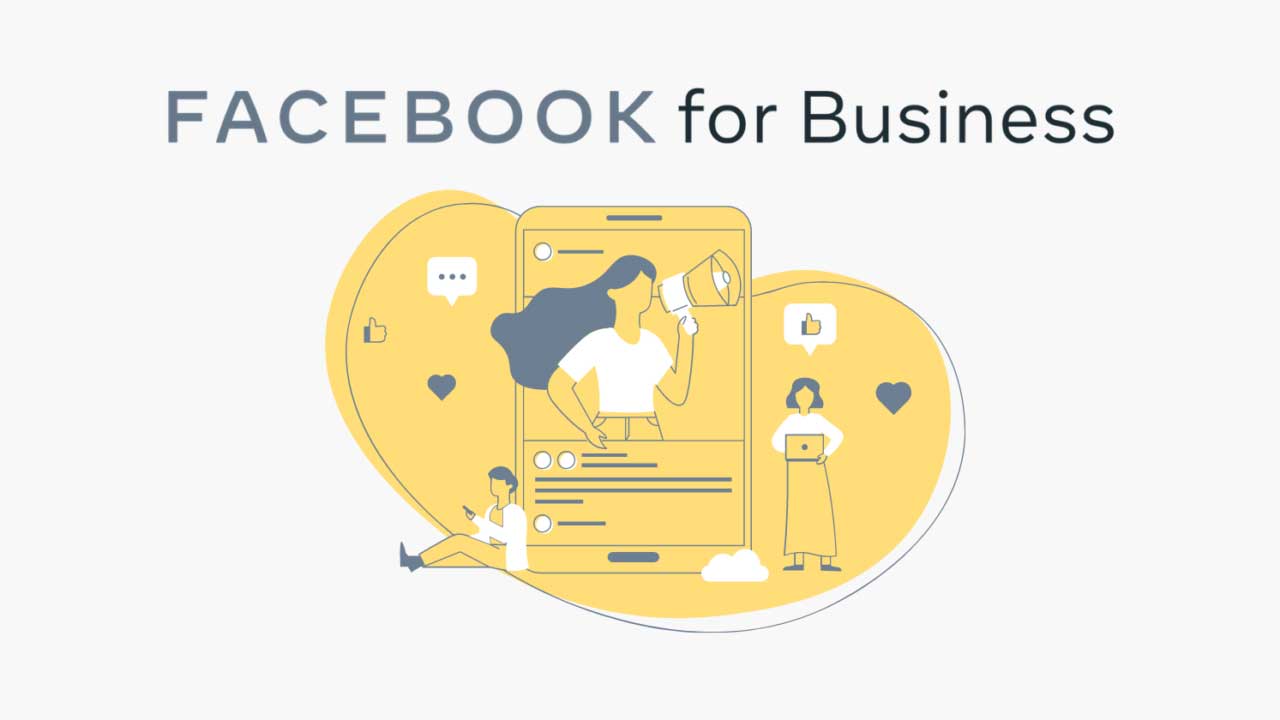Social media has taken over the world, and with it, Facebook, the biggest social network, is at its helm. The speed at which it took off was astonishing; a decade ago, only college students were on social networking sites like Facebook. Today, you can see that everyone is scrolling through their phone or laptop to check for updates from friends and family on Facebook.
Ever since Facebook announced that they changed the algorithm used to display ads in the news feed, there has been an intense debate over whether businesses should use Facebook for social media marketing or not.
It can be hard to know whether your Facebook ads are effective and what you can do to make them more effective. There is a lot of debate about the effectiveness of Facebook ads and how they stack up compared to other types of advertising, such as Google Ads.
Some claim that businesses should not be advertising on Facebook at all. However, would you believe that Facebook marketing and advertising can be highly effective and very affordable at the same time? In this article, we will explore how companies can use Facebook advertising to reach their target audience and methods to measure its effectiveness.
Stats of Facebook
Before reading further, first, let’s take a look at the statistics of Facebook. With roughly 2.89 billion monthly active users as of the second quarter of 2021, Facebook is the biggest social network platform worldwide. With a number of users that big, it is no wonder why so many people are advertising on Facebook.
In the U.S. alone, there are over 190 million users on the platform. This is more than half of their entire user base. 56% of the total Facebook audience is male, while only 44% identify as female.
The research found that 9.4% of total active Facebook users worldwide are women between the ages of 18 and 24 years, while male users between the ages of 25 and 34 years constituted the most significant demographic group on the social media platform.
In the 2nd quarter of 2021, Facebook Revenue was at $29.08 billion, predominantly from ads. It is a 59% increase over last year. Although, daily usage is stalling in Europe and the USA.
According to Ben Simkin, “More businesses are turning to Facebook as an advertising medium because it’s affordable and easy to use.” One area where businesses can find success with Facebook is explicitly used as a lead generation tool. Businesses can create Facebook groups and offer valuable content to people interested in their business or niche.
What is more exciting and surprising to hear is that most users are visiting the site via mobile device. The question is how companies can tap into this vast network to reach these millions of people? There is only one way to do this is by using Facebook advertising.
Does Facebook Advertising Work?
It’s a perfectly reasonable question, regardless of how familiar you are with paid social media in general or paid social advertising on Facebook specifically. After all, the whole process can seem a bit confusing at first. You might have many questions such as:
- What kind of ads are there? What are their differences?
- How much does paid social media cost on Facebook?
- How do you choose the right ad type to reach your audience and get the best results?
The answer is simple—there are a few different types of Facebook ads that are best for conversions and effectiveness. An effective advertisement, whether it’s on Facebook or anywhere else, follows these three steps:
- Understand your business goals and define success.
- Clearly define your target audience.
- Choose the right type of paid social media ad to help you achieve your business goals.
- Analyze which strategies work best (then repeat them).
How Can Companies Use Facebook Advertising Effectively?
Source: Facebook Business
Advertising on Facebook is a great opportunity for businesses to promote their products and services. As marketers, we know that the platform has an immense reach and provides plenty of data to create compelling ads for your audience. In addition, the options for creating an advertisement are pretty diverse, with many different types of ad formats and targeting available. The following are a few ways that businesses can effectively use Facebook advertising:
Focus on the Right Audience
Before you start using Facebook ads, make sure you know what your target market is. Who do you want to reach specifically? As much as possible, try focusing on speaking to a very targeted audience. Your aim should be to create compelling ads that will attract the right audience to your products and services.
Once they are engaged in your posts or pages, it is easier for you to communicate and deliver value-adding content so that their interest in your product increases over time. The more you can communicate with them, the better your ads will perform. It means that they will be more likely to take action on your ads and eventually buy from you.
Identify Your Target Keywords
The next step is to identify your target keywords to create compelling ads for this particular audience. Make sure you know who they are, their interests, and how you can reach out to them through the words they use when searching for a particular product or service online.
By doing this, it will be much easier for you to create relevant ads with a call-to-action that they would like to click on. Finally, to truly capture the attention of your target market on Facebook, make sure your ad copy is catchy and eye-catching.
Explore Advanced Options in Your Facebook Ads Manager
Once you have identified the right audience and right keywords, it is now time to go for more advanced options on your Facebook ads manager. These include:
Frequency cap of your Ad: You can limit how often people see your ad after they click on it by setting up a frequency cap. This means that whoever clicks on your ad will only be shown your ad X times altogether.
The higher the frequency cap, the lower the cost-per-click and vice versa. The reason why companies use this method is so that they do not antagonize their potential customers too much with irrelevant messages from them through excessive advertising.
Conversion Tracking: If you want to measure how effective Facebook Ads are, then you need to set up conversion tracking. This will help you know exactly how many people who have seen your ads end up purchasing a product or service from your website. You can use Google Analytics to see how many clicks you have got from Facebook.
Create Retargeting Ads: Remember when we talked about going for the right audience in order to maximize your reach? One of the best ways to do this is by creating retargeting ads.
As much as possible, try notifying your customer base that they might see an ad if they visit another site after shopping with you on Facebook.
Just make sure that it does not come off as spammy to them and that it continues to deliver value-adding content so that their interest in your product increases over time until they eventually buy from you again.
Add Dynamic Product Ads: Dynamic product ads are similar to retargeting ads, but they can be targeted at people who have already visited your site once or completed a transaction with you. It is best if the message of these dynamic product ads is tailored to match whatever action your potential customers just did on your website.
For example, if they have visited a product page for men’s shoes, then the ad copy should highlight that you have this particular style in stock and offer a discount.
Create Custom Audience: Using Facebook Advertising tools, you can easily create custom audiences based on interests and demographics. This simply means that it will be easier to target users who like certain brands or products as well as those who live in specific areas determined by location.
Use Video Ads: If you want to make sure your Facebook ads perform better and have more impact, then it is best to create video ads. This can be done by simply uploading a relevant video on your Facebook page or by creating one from scratch with the help of an expert agency.
With this approach, you will not only be able to create a professional image for your brand but also maximize conversion rates since videos are proven to capture people’s attention much easier than words alone.
Today, many brands have already replaced their traditional advertising methods with online commercials because they know that social networks like Facebook or Snapchat offer them a lot of potentials when it comes to reaching out to their target market at little cost.
Creating quality content and using effective targeting methods will definitely help you get the most social media marketing value out of your Facebook ads. It takes a lot of time and energy to set up these promotional campaigns, but it is well worth it in the end and is likely to result in significantly increased traffic to your website that comes from social media.
Why You Should Use Facebook Ads for Your Business
While organic content marketing through a blog post or social media content is great, Facebook ads are a powerful way to promote your brand, products, or services to your target market. You can reach more people with an advertisement on Facebook than you can with traditional campaigns in magazines and newspapers.
For a small cost per click, you only pay when someone clicks on your ad. This means that it is much cheaper to advertise on Facebook than other media outlets; hence you will get what you want while keeping costs low.
In addition, the ads can be tailored specifically for each user based on their browsing history, Facebook profile information, and what they have “Liked” previously. The results that you get through ads are real people who engage with the content and turn into leads that contribute to sales.
Maintaining a good and engaging Facebook presence is vital to the success of any business since it’s really the biggest platform for you to draw in your audience. In addition, many reputable sites feature ads on Facebook based on recommendations from other users. Your ad may end up directly in front of your perfect customer and your core audience.
This article was previously published on SocialSellinator’s blog.




0 Commentaires